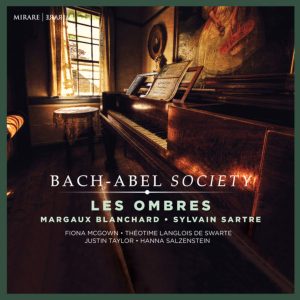Purcell • Berio • Couperin • Britten
What is the very thing that has reconnected us to ourselves and others since the dawn of time, if not the telling of stories through music?
Spanning the ages, the tones of Margaux Blanchard’s viola da gamba and Sylvain Sartre’s traverso, combined with the expressive and enigmatic mezzo of Fiona McGown, awaken in our collective memory the echoes of folk melodies—the very roots of our human nature.
By returning to the origins of song itself, Les Ombres capture in the works of Haydn, Berio, Ravel, Monteverdi, Purcell, Rameau, Britten, and even contemporary folk virtuoso Sufjan Stevens, these suspended moments where music, like a universal soil, seamlessly unites crafted beauty with primal grace.
This space of infinite possibilities, where languages and styles intertwine and merge, is what Les Ombres share with all, connecting us—through sound—to the very source of our emotions.
Fiona McGown / mezzo-soprano
Sylvain Sartre / transverse flute
Margaux Blanchard / viola da gamba
Luciano Berio / “Rossignolet du bois”
Margaux Blanchard / “Le temps qui passe” (instrumental)
Anonyme (Xe siècle) / “Havun” (instrumental)
• • •
Margaux Blanchard / “Vol de nuit” (instrumental)
Maurice Ravel / “Chanson des cueilleuses de lentisques”
Jean-Baptiste de Bousset / “Pourquoy doux rossignol” (instrumental)
Jean-Philippe Rameau / “Viens hymen”
• • •
François Couperin / Les bergeries (instrumental)
Maurice Ravel / “Trois beaux oiseaux du paradis”
• • •
Claudio Monteverdi / “Possente spirto” (instrumental)
Claudio Monteverdi / “Oblivion suave”
Benjamin Britten / “Il est quelqu’un sur terre”
• • •
Benjamin Britten / “The salley garden”
Joseph Haydn / “John Anderson”
Henry Purcell / “Here the deities” (instrumental)
Joseph Haydn / “Mary’s dream”
• • •





